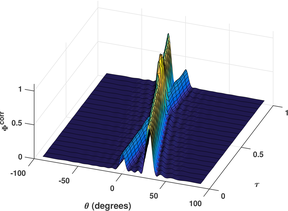Structured and Stochastic Modeling

Almost all data encountered in practice has random aspects, be it pertaining to inherent stochasticity or due to observation noise. Our research group studies how to most efficiently model and describe the information contained in such data to allow for formulating powerful estimators and algorithms. The research results are applied to remote sensing, audio signal processing, as well as to spectroscopy.
We collaborate with international partners, such as KU Leuven, Lund University, and KTH Royal Institute of Technology.
Current research topics
- Optimal transport in signal processing: we use the concept of optimal transport for inducing geometric structure to signal spaces and construct powerful tools for modeling and estimation.
- Spatio-temporal modeling: efficient description of data that is supported in both space and time, for example, broad-band multi-sensor signals appearing in radar, sonar, and audio signal processing.
- Misspecified modeling: the impact on estimation and data explanation performance when (sometimes deliberately) using a “wrong” model to describe data.
-
Optimal sampling: how to collect measurements to maximize the information content of the data, in particular for applications in which data collection is costly or time consuming.
The Structured and Stochastic Modeling Group is led by Professor Filip Elvander (personal website).
Research group members








